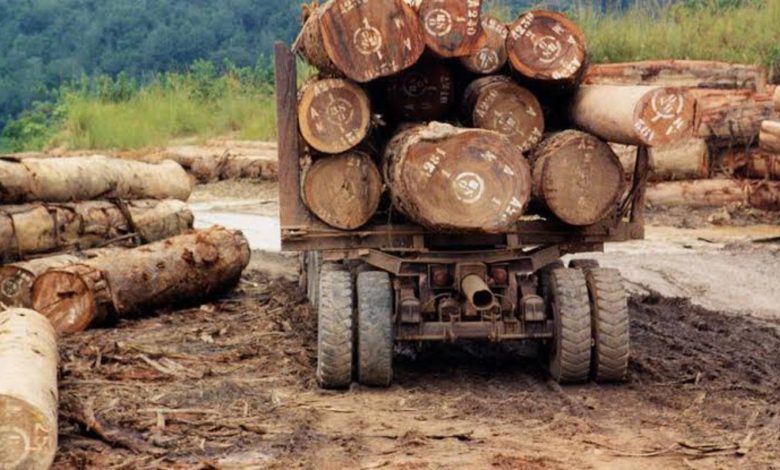DR Congo Violating Its Own Decision To Suspend Issuance Of Timber Exploitation License

In order to stop the illegal and wanton destruction of its immense forestry resources, the government of the Democratic Republic of Congo in 2002 decreed a moratorium on the issuance of new timber exploitation licences. The intention was that with the support of the World Bank, Congo would transform its forestry sector into a durable industry to generate huge revenues and create jobs, while at the same time protecting the forest.
But this does not seem to be the case as national and international environmental civil society organisations, including Greenpeace Africa, have deplored the persistent violation of the 2002 moratorium by the Congolese government itself.
“The Congolese government has been circumventing this moratorium with the intention of lifting it before the preconditions put in place are fulfilled thus menacing the second largest tropical forest in the world,” according to Greenpeace.
“Instead of putting in place the measures it promised, the Congolese government has been consistently violating the moratorium by issuing illegal exploitation licences through corruption thus causing enormous economic and social damages,” it said.
The group said “the Congolese government must maintain the moratorium on the attribution of new forestry exploitation licences as long as the conditions defined by law are not fulfilled”.
In view of the fact that the timber exploitation industry’s contribution to the national treasury is very feeble, the environmental protection organisations called on the Congolese government to explore other forestry exploitation avenues such as community forestry management.
The Democratic Republic of Congo is in the heart of the Congo Basin forest reserve which is the second largest forestry mass in the world after the Amazon Forest in Brazil.
Sixty per cent of the Congo Basin forest is found in the DR Congo and it occupies 66.5 per cent or more than 2,345,000 square kilometres of the land surface of the Democratic Republic of Congo.
With 155 million hectares of forest, the Congolese forests represent about 10 per cent of the world’s tropical forest reserves and home to elephants, gorillas, okapis, hundreds of bird species and thousands of plants.
It is estimated that about 40 million Congolese people depend on the forest for their livelihoods by way of farming, hunting and wood for cooking. The forest alone holds seven per cent of global carbon emissions thus constituting one of the most important global reservoirs of carbon.
Support Our Journalism
There are millions of ordinary people affected by conflict in Africa whose stories are missing in the mainstream media. HumAngle is determined to tell those challenging and under-reported stories, hoping that the people impacted by these conflicts will find the safety and security they deserve.
To ensure that we continue to provide public service coverage, we have a small favour to ask you. We want you to be part of our journalistic endeavour by contributing a token to us.
Your donation will further promote a robust, free, and independent media.
Donate HereStay Closer To The Stories That Matter




